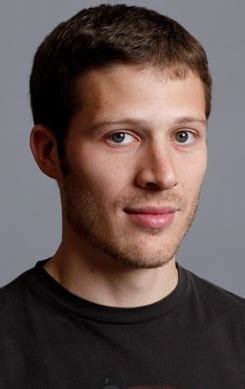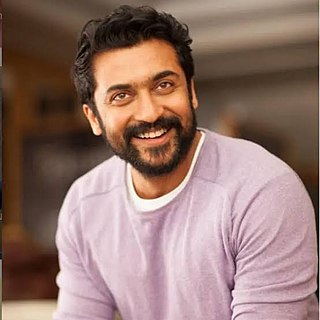A Quote by Zach Gilford
The best directing style is the one that lets me do whatever I want. Seriously though, I like to be challenged and I like to collaborate. I love finding the medium between what I think and what a director does. I hate when a director uses the "my way or the highway" approach. But it also sucks when they tell you everything you do is great and offer no input. It's a fine line a director has to walk. It is a hard job.
Related Quotes
I like to adapt to a director's way of working. I love doing that. Each director is so different, and you have to adapt to this new way of doing something. That's what's amazing to me. That's why I love directors. I don't want to director to have to work around me. I think it's more fun for me to come in on their thing.
To be a great director, what does it mean exactly? It's not only about a great director, but also about being able to rely on the very special chemistry that goes between them. It not only has to be a great director, but the great director has to make his relationship to you, the actor, very special.
The producer can put something together, package it, oversee it, give input. I'm the kind of producer that likes to take a back seat and let the director run with it. If he needs me, I'm there for him. As a director, I like to have the producer there with me. As a producer, I don't want to be there because I happen to be a director first and foremost, I don't want to "that guy."
As an actor, it's always important to understand what the director is after. That, to me, is my job. When I'm acting, I like to ask a lot of questions and understand exactly why the director is doing what they're doing, so that I can provide him or her with the ingredients that they need to get the scene that they want. It's not to challenge them, in any way. It's just so that I can do my job best.
With a director it's all about the work; I'd work with a great director over - you know, I'm not the kind of actor who that doesn't go, 'I want to play this role.' It's more like, 'I want to work with this director,' regardless of what the role is because if it's a good director, you'll probably find a good role because it's a decent film. But a mediocre director will always make a mediocre movie.
Film’s thought of as a director’s medium because the director creates the end product that appears on the screen. It’s that stupid auteur theory again, that the director is the author of the film. But what does the director shoot-the telephone book? Writers became much more important when sound came in, but they’ve had to put up a valiant fight to get the credit they deserve.
A strong film director does leave you to your devices. A strong director allows you to be free and you trust that he's there and he will tell you if you've gone too far. A strong director allows you to be much more experimental and take greater chances than a director who isn't secure within himself.
I'm the type of actor that believes the director has to be in charge. I've been on sets where the actor's ego was the most important thing, and with a director that messes it up. But I don't like a dictator, I want it to be collaborative - the best idea wins. If I feel respected, and I'm going to give that back. If a director wants to try something, cool, I'll give it back. I also feel like they cast me for a reason, so I'm going to make my mark on it... let me do my thing.
What's interesting as a director, and even studio executives don't understand this, is that if you're directing a $200 million movie with six million people, it's the same as directing a $25,000 movie with three people. The director's job is, "You stand there and do that," or "This is the shot I want." The logistics change, but the job remains the same. And I enjoy the job.
When I'm in the studio, I write the music, I play the different instruments, I produce it, I arrange it, and it's a self-indulgent exercise. It's the way I make my music. And when I'm acting, I get to leave myself behind, which is a relief. I get to collaborate with a director; I respect the director's medium and all the actors and actresses. So at the end of the day, it's about a character and it's about a director's vision. It's a really good balance for being so intense and alone in my personal process of making music.




































